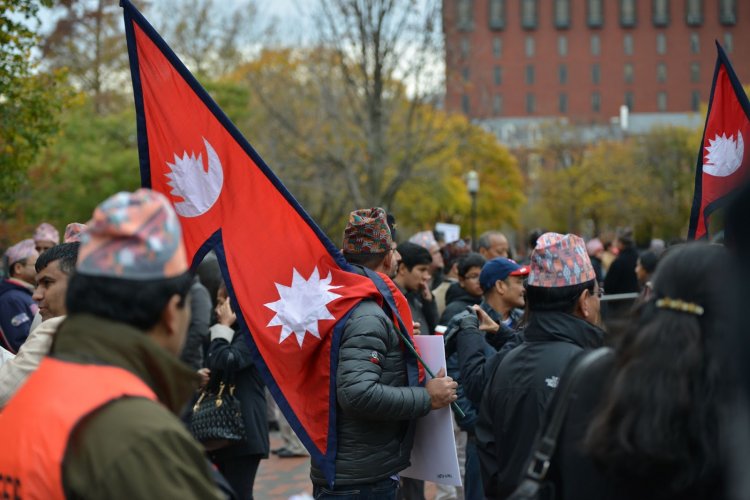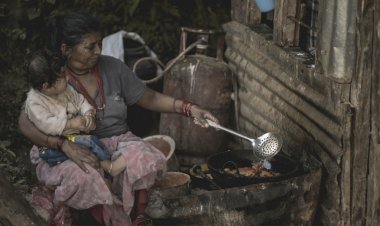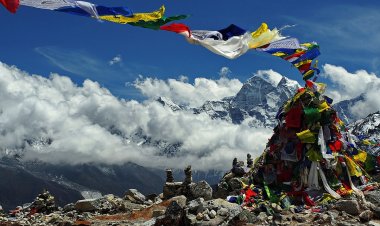The Struggle for Democracy and Human Rights in Nepal
Explore the challenges and progress in Nepal's struggle for democracy and human rights. Learn about the obstacles faced by marginalized communities and the prospects for the future.

Nepal, a country located in South Asia, has a long history of political instability and human rights violations. For decades, the country was ruled by a monarchy, and democracy was only introduced in 1990. However, even after the establishment of a democratic government, Nepal has faced many challenges in ensuring the protection of human rights and the rule of law. This article will examine the struggle for democracy and human rights in Nepal, exploring its history, challenges, and progress.
History of Democracy and Human Rights in Nepal
In the 1950s, Nepal saw the overthrow of the Rana regime, which had ruled the country for over a century. The monarchy took control of the country, and it was not until 1990 that democracy was introduced. The constitution of 1990 provided for a constitutional monarchy and a multiparty democracy. However, the monarchy retained significant powers, and political instability continued.
In 2001, the Crown Prince of Nepal massacred his family members, including the king, and then committed suicide. His uncle, Gyanendra, took the throne and suspended the constitution, sparking protests and a movement for democracy. After weeks of demonstrations, Gyanendra was forced to restore the constitution and hand over power to an interim government in 2006.
Challenges to Democracy and Human Rights
Challenges to democracy and human rights in Nepal are many, and they pose significant obstacles to achieving a just and equitable society. Some of the challenges include:
-
Political instability:
Nepal's political landscape has been characterized by instability and frequent changes in government. This has made it difficult to establish a stable and functional democratic system that can address the needs of the people. -
Corruption:
Corruption is a significant challenge in Nepal, and it undermines the effectiveness of democratic institutions. Corruption can also lead to human rights violations, as those in power may use their positions to suppress dissent and violate the rights of marginalized communities. -
Discrimination:
Marginalized communities in Nepal face discrimination and exclusion from mainstream society. This includes ethnic and religious minorities, women, and the LGBTQ+ community. Discrimination can lead to human rights violations, such as violence, harassment, and exclusion from political and economic opportunities. -
Limited access to justice:
Nepal's legal system is often criticized for failing to protect human rights. Access to justice is limited, particularly for marginalized communities, and those who have been victims of human rights violations may struggle to receive redress. -
Violence and conflict:
Nepal has a history of violence and conflict, particularly during the civil war that lasted from 1996 to 2006. This has left a legacy of trauma and human rights violations that continue to affect communities today. -
Restrictions on freedom of expression:
Freedom of expression is essential for a functioning democracy, but it is often restricted in Nepal. Journalists, activists, and members of civil society may face intimidation, harassment, and censorship for speaking out against human rights abuses or criticizing the government. -
Economic inequality:
Economic inequality in Nepal is a significant challenge, with many communities living in poverty and lacking access to basic necessities such as healthcare, education, and clean water. Economic inequality can exacerbate other human rights violations, such as discrimination and limited access to justice.
Addressing these challenges will require significant effort and commitment from the Nepalese government, civil society organizations, and the international community. It will require addressing the root causes of political instability, corruption, discrimination, and economic inequality, and promoting a culture of respect for human rights and the rule of law.
Progress and Prospects for the Future
While Nepal still faces significant challenges in promoting democracy and human rights, there have been some important progress and prospects for the future. Some of these include:
-
Increased political stability:
Nepal has made progress in achieving political stability since the adoption of a new constitution in 2015. This has provided a more stable foundation for democratic institutions to function effectively. -
Constitutional protections:
The 2015 constitution provides significant protections for human rights, including provisions for the rights of marginalized communities and the establishment of independent human rights commissions. -
Improved access to justice:
The government has made efforts to improve access to justice, including the establishment of legal aid centers and the adoption of new laws to address human rights violations. -
Civil society engagement:
Civil society organizations play a critical role in promoting human rights and holding the government accountable. In recent years, there has been an increase in civil society engagement and advocacy, including by women's groups, LGBTQ+ organizations, and human rights defenders. -
Economic development:
Nepal has made progress in promoting economic development and reducing poverty, which can help to address some of the root causes of human rights violations. -
International support:
The international community has played a significant role in supporting Nepal's democratic transition and promoting human rights. This includes providing financial support for development programs, technical assistance for legal and institutional reforms, and advocacy for human rights.
However, significant challenges remain, and much work needs to be done to address them. This includes addressing corruption, discrimination, and restrictions on freedom of expression, as well as addressing the root causes of economic inequality and promoting social inclusion.
Overall, the prospects for the future of democracy and human rights in Nepal are mixed. While there has been progress in some areas, there are still significant challenges that need to be addressed. However, with continued commitment from the government, civil society organizations, and the international community, there is hope for a more just and equitable society in Nepal.
In conclusion, Nepal's struggle for democracy and human rights is ongoing, with many challenges still to be overcome. However, the country has made significant progress in recent years, and there are reasons for cautious optimism. By addressing the root causes of political instability, corruption, and discrimination, Nepal can continue to move towards a more democratic and just society.
What's Your Reaction?





































































































